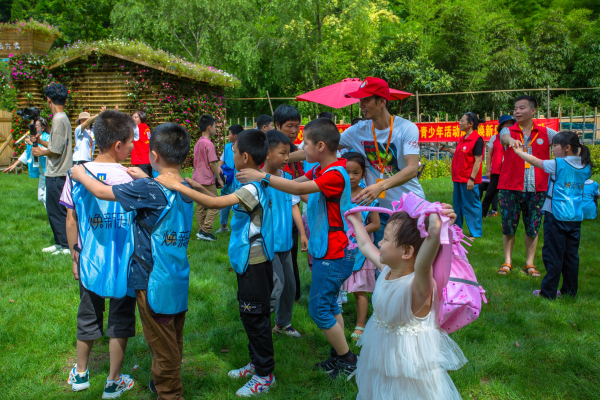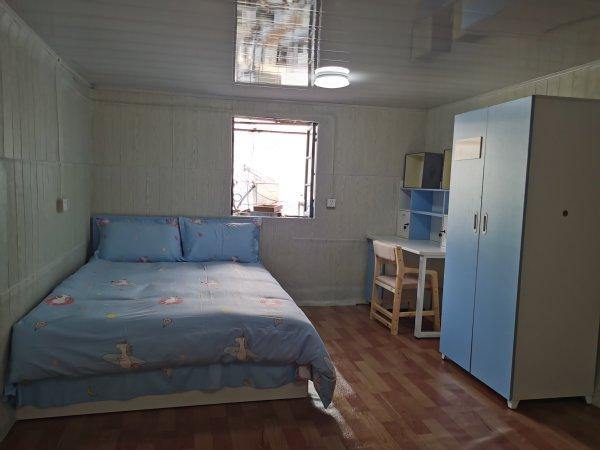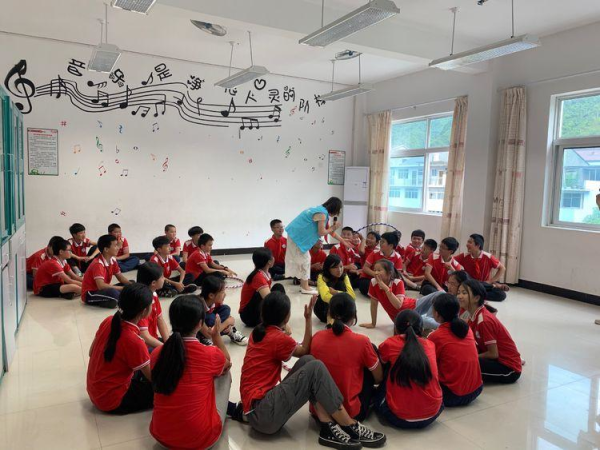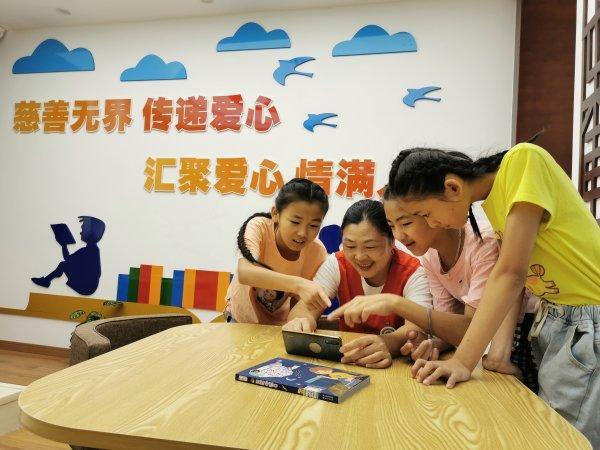
(Photo via He Yangyang)
Bring new homes to left-behind children
It was a pair of big, blinking eyes, just like lambs’. A shy 5-year-old boy hid behind his grandmother. As soon as a stranger came near, he ran into his room. His grandmother, who did not know how to communicate, had to drag him to the front. New bags brought by the volunteers did not win the boy's favor but caused him to cry.
A year later, Yang Xiaoli, deputy director of the Bureau of Civil Affairs in Jingning County, still remembers her first visit to the left-behind children's home.
"Through simple interactions, I could immediately glimpse into the child's psychological situation," she said. Behind the body movements of resistance are the lack of security, hidden inferiority complex, and improper education.
The local industry in Jingning is not developed. According to statistics, the number of left-behind children and economically poor children in the county currently exceeds 1,000. The number will be more shocking if orphans whose parents have separated are added.

(Photo via Jingning Civil Affairs Bureau)
In the view of Chen Zhong, the party secretary of Jingning, caring for the left-behind and needy children is like cultivating saplings. The best caring period cannot be missed, and only sporadic loving care is not enough. They should start the reform from the system.
In 2019, a new project was launched, aiming to improve the living environment for children from poor families aged 5 to 14. So far, it has completed the transformation of 355 families with low living allowances. It has become the first county in Zhejiang to realize the full coverage of the project for left-behind children.
The improvement of the living environment is actually changing the spiritual outlook of left-behind children. But as the tide receded, many problems remained on the beach — how to create a good environment for left-behind children to grow up and how to achieve lasting and powerful care?
Jingning is faced with many problems that need to be solved urgently in mountainous areas and counties: to build an upgraded care system for children and promote the transformation of the child welfare system from a supplement type to a moderately universal type.
After thorough research, the "Care 365" plan, which gathers the strength of all aspects, has become their guide.
(Photo via He Yangyang)
Six tutors for one child
In the "Care 365" system, which Jingning pioneered last year, each left-behind or children from the disadvantaged backgrounds has at least six tutors who are responsible for different tasks.
Under systematic care, volunteer Li Yan witnessed a child walking out of the inner "black hole".
When she first met Kangmei, the 13-year-old children, she was still in bed near noon, regardless of her appearance. Her mother ran away from home, whereas her father is too busy to take care of her, which made the young girl suffering from a mild depressive tendency.
In each subsequent home visit, Li Yan would insist on chatting with her for half a day about local news, the popular movies and even gossip news. Whether Kang Mei responded or not did not influence her. Before she left, she would always tell the girl that she will be here whenever Kang Mei has something to tell.
This promise created magic power as time passed. In Li Yan’s third visit, Kang Mei smiled for the first time and accepted an invitation to take a group photo in front of her house. Half a year later, when Li Yan came to send masks and daily necessities again, Kang finally gathered her courage to talk about herself. Out of the corner, out of the house, out of the village, Kang Mei's small world began to be connected with the big world outside.

(Photo via Jingning Civil Affairs Bureau)
The assistance of smart cloud platform
"Communications between children are more open and equal than that between children and adults," said Zhang Haiwei who has a 12-year-old daughter. Taking child volunteers into the care system is an attempt Jingning has been making for the past one year.
Jingning is trying to make the process more transparent by digitizing children's records. The smart cloud platform of the “Care 365” program is then being piloted. Children can enter the children's home or participate in group activities to earn credits through the "love card" with a chip. Tutors also have online accounts on which they can grade the children for their exams and daily performances. The credits can be exchanged for stationery.
The Women's federations, the Public Security Department, and other relevant departments of children's work can also take this platform to realize information sharing and interactive cooperation.

(Photo via Jingning Civil Affairs Bureau)
To involve parents of left-behind children into the accompanying system is another consideration for the platform construction. The platform will update the status quo of guardians in real-time, communicate with parents about children's growth, and timely urge parents to fulfill the responsibility of guardianship. Mental health and emotional support are given greater priority.
(Compiled by Xu Yuhong, translated by Zou Guan'er)




